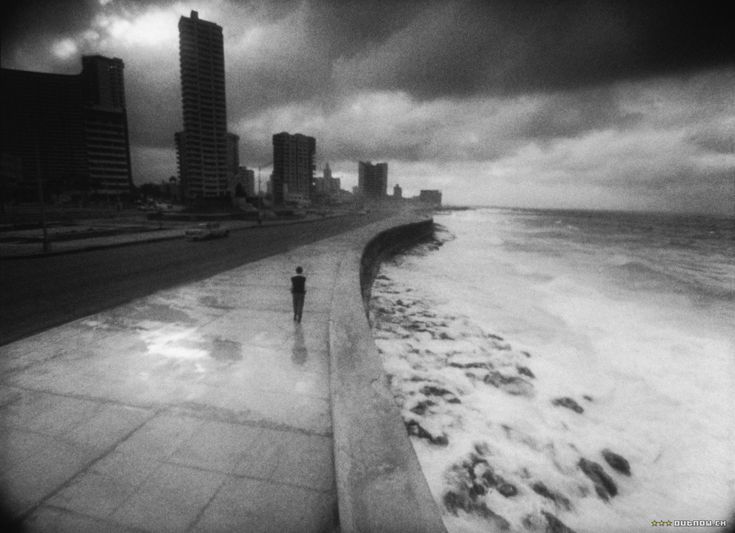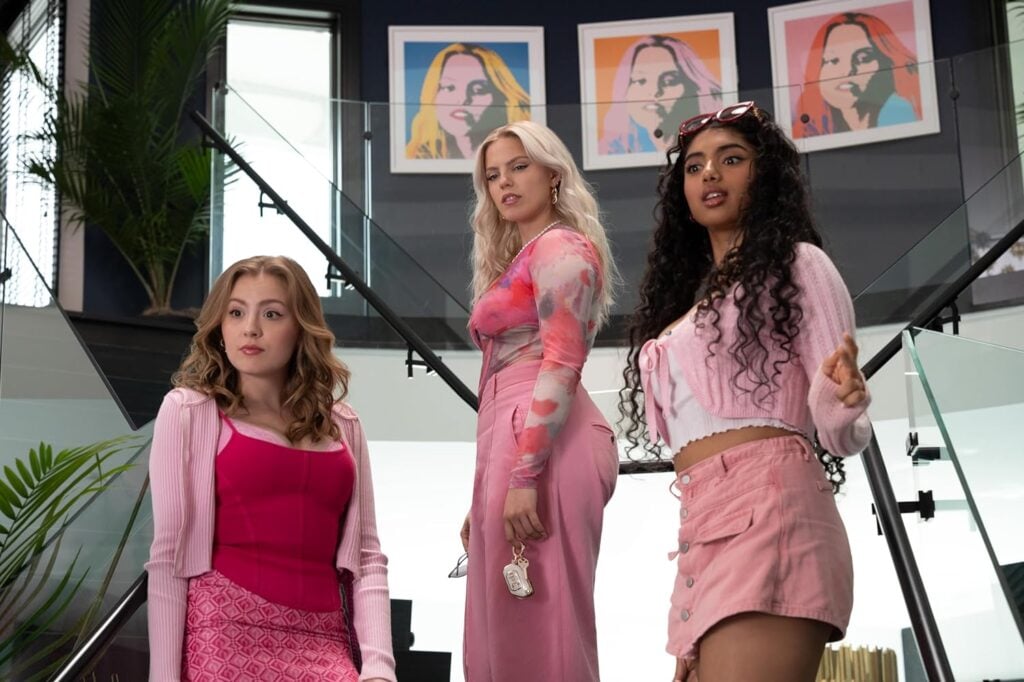Criterion has upgraded their previous 2006 DVD release of Marco Bellocchio’s Fists in the Pocket to Blu Ray. Released in Italy in 1965 Fists in the Pocket is Bellocchio’s startling debut feature. Bellocchio along with Bernardo Bertolucci was part of Italy’s 1960s new wave of directors breaking taboos and conventions. Fists in the Pocket indeed must have been shocking upon its initial release and after over 50 years still retains quite a bit of that power.
The Production: 3.5/5
Fists in the Pocket is a young man’s movie. More precisely, an angry young man’s movie. Directed by twenty-five-year-old Marco Bellocchio one year out of film school, the film plays like a howl from the soul. Most works about rebellion deal with authority; Fists in the Pocket does too, but its sense of powerlessness is much deeper. It’s a cry against existence, like watching somebody rage against their own DNA.
Young Allessandro (Lou Castel) lives with his blind mother (Liliana Gerace) and three siblings in a decaying villa outside an unnamed northern Italian town. The home seems to be a monument to the past with its out of date décor, clutter, and faded photos.
It’s cleverly never labeled something pat like epilepsy, but Allessandro is prone to seizures as is his younger, mentally disabled brother Leone (Pierluigi Troglio). The sister Guilia (Paola Pitagora) also suffers from mysterious but seemingly different seizures as well as psychological problems. The oldest brother Augusto (Marino Mase), who suffers from no obvious congenital problems is the sole breadwinner and by default of age and ‘normalcy’, the father figure of the family.
There must have been something in the air in the mid-1960s about what constitutes a normal family as this film was produced the same year that both The Munsters and The Addams Family premiered on US television. This was also around the same time Jack Hill’s wonderful Spider Baby was produced. The above-mentioned American shows and film are about families that are united by their grotesqueries. These families feel legitimate love because of their differences or in the case of Spider Baby, affliction – The Munster’s fierce protection of ugly duckling Marilyn is funny because she is ‘normal’. Fists in the Pocket is the opposite; the family in the film is being torn apart by their afflictions.
The film opens Lucia (Jeannie McNeil) sharing a very disturbing unsigned letter with her fiancé Augusto. The letter pieced together like a kidnapper’s ransom note threatens the couple’s engagement. Augusto knows the letter came from his troubled sister. While this happens, we are introduced through cross-cutting to Augusto’s siblings.
The attractive Guilia stands on a road while two boys on a scooter tease her – or is it the other way around? The ‘afflicted’ children in this family seem to have little interaction with others their own age. Is the sexually stunted Guilia enjoying the attention?
The film’s protagonist Allesandro is introduced by falling into frame from a tree branch out of frame. Almost like a nut or piece of fruit falling to the ground. Leone, the most obviously unwell member family is berated by Allesandro for feeding caged rabbits (an allusion from Of Mice and Men?) and is dismissed by Allesandro as fit for only watering plants.
When Augusto stops to pick up Guilia she doesn’t deny authorship of the letter and shows Augusto love poems to her from her brother Allesandro. This is a very unhealthy family; the dining room table being the site of most of their never-ending battles. The meals are filled with tension in several different forms: resentment, delusion, contempt, condescension, jealousy, and misplaced sexual tension seem to be the diet of this family.
There really isn’t a plot to speak of in Fists in the Pocket. It’s a series of episodes bringing the family closer to destruction.
Allesandro decides to get his driver’s license in order to take the family on one it’s regular excursions to the cemetery (again, the past) to drive the car over a cliff, thereby ending Augusto’s genetic imprisonment.
Allesandro pretends that this horrific plan is motivated by the desire to end Augusto’s financial responsibility and free Augusto to live a ‘normal’ married life with Lucia. Allesandro professes to do this for Augusto’s benefit, yet harbors deep resentment over Augusto’s dominance over him. Allesandro wants to invest in a chinchilla farm, but Augusto rejects this offer as being too costly and uses family health costs as the reason. By alleviating Augusto (and the family) of its financial burdens Augusto can get married and move to town, and though unstated, Allesandro will be free to pursue his wishes.
Augusto is not an innocent, suffering saint – he longs to be rid of his burden. He too resents his role in the family. A role thrust upon the young man by antiquated customs. After reading Allesandro’s letter explaining his plan, he does nothing to try and stop it. He passively accepts the suicide/murder plan as a victim – as an act of fate, or as he has accepted his role in the family.
Allesandro being the lead, is the most defined character. Lou Castel is eccentric and dominates the film. Allesandro is a mass of contradictions. He revels in his affliction and inability to act yet longs for power. While he claims that he wants to help his brother he, in fact, covets all his brother has – at one point inappropriately kissing Lucia. When he goes to a prostitute, he chooses Augusto’s regular prostitute, even going as far as asking how his performance compares to his brother’s.
Allesandro is sensitive and intelligent yet incapable of connecting with others. When Augusto takes him out for a night of dancing and socializing, he willfully stays to himself (is this to prove his superiority?).
Bellocchio is unsentimental and takes no prisoners; religion, society, and the family itself are targets. Bellocchio is talented and intelligent. Fists in the Pocket is well directed, acted, shot and edited. One would never guess that it was made by a recent film school graduate. Without giving away too much, the murder sequences are as well done as any thriller and are heightened by Ennio Morricone’s evocative score that goes from throbbing to celestial.
Fists in the Pocket is a rough ride. The film has comic moments but is essentially humorless and ultimately one-note, which makes the film relentlessly grim. The film is sincere, and I assume very personal; this may be depending on your point of view, a flaw. Would the film be more powerful with a little distancing? I’m reminded of one of my NYU professor’s comments to a student after screening a project. This professor was also one of Oliver Stone’s instructors. He said to the student after the screening, ‘As I once said to Oliver Stone, it’s very good, but Oliver, put down the sledgehammer.’
Video: 4.5/5
3D Rating: NA
The transfer of Fists in the Pocket looks very good. It’s based on a 4K restoration by Cineteca di Bologna supervised by Bellocchio. According to the ‘About The Restoration’ notes, the contrast in this version was heightened to emulate the look of the British Free Cinema movement of the late 50s and early 60s. This look was not possible for the film’s initial release due to a lab error. The look does resemble films from that era.
Audio: 4.5/5
According to the same notes, the mono audio has been restored by L’Immagine Ritrovata from a 35mm magnetic track and the original soundtrack negative. I’m unfamiliar with ‘original soundtrack negative’ but the audio is very good. Morricone’s music sounds wonderful.
Special Features: 3/5
Special Features include:
Interviews ported over from the DVD release with director Bellocchio, actors Castel and Pitagora, editor Silvano Agosti, critic Tuillio Kezich, and director Bernardo Bertolucci.
A new interview with film scholar Stefano Albertini
New English translation subtitles
An essay by film critic Deborah Young also from the DVD release
Surprisingly there is no audio commentary
Overall: 4/5
Marco Bellocchio’s Fists in the Pocket is an uncompromising, angry film. As I’ve grown older, I’ve become ambivalent about films like this. On one hand it wallows in unpleasantness, challenging the viewer. On the other hand, I appreciate the craft and drive it takes to get something like this made. If you admire Marco Bellocchio and particularly this film, I can’t imagine it ever looking better than Criterion’s blu ray.
https://www.amazon.com/Fists-Pocket-Criterion-Collection-Blu-ray/dp/B07T43YBLD/ref=tmm_blu_swatch_0?_encoding=UTF8&qid=&sr=Post Disclaimer
Some of our content may contain marketing links, which means we will receive a commission for purchases made via those links. In our editorial content, these affiliate links appear automatically, and our editorial teams are not influenced by our affiliate partnerships. We work with several providers (currently Skimlinks and Amazon) to manage our affiliate relationships. You can find out more about their services by visiting their sites.






Similar threads
- Ronald Epstein
- Blu-ray and UHD
2 Tags arrow